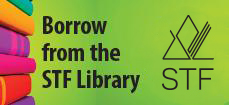Choral 10, 20, 30
CP30.3
Demonstrate ability to interpret, with increased accuracy and expression, music using various visual (e.g., standard and/or non-standard notation, written musical scores, graphic score) and aural music systems.
Indicators for this outcome
| (a) | Demonstrate, with increased accuracy, the ability to respond to notation systems such as letter names, solfege, scale degrees, aural cues when singing in the context of the repertoire studied. |
| (b) | Demonstrate increased ability to read, notate, understand and interpret written musical scores and various notation systems. |
| (c) | Sight sing a short passage (e.g., at a lower difficulty level than the repertoire studied). |
| (d) | Demonstrate ability to learn and lead others in learning music through aural transmission (e.g., picking own part out of harmony, learning by listening to others, matching with others in same section, using another part as a reference for singing own part, learning a melody through repetition). |
| (e) | Interpret expressive terms and music symbols within the context of the repertoire (e.g., tempo, dynamics, form, style, articulation, graphic symbols). |
Loading...


R013673
Alfred's Essentials of Music Theory: A Complete Self-study Course for All Musicians
This resource provides a comprehensive, step-by-step process for learning theory from basic beginner concepts through to more advanced theoretical applications. The book incorporates listening and ear training for an integrated application approach. The book also includes reviews and quizzes with answer keys.

